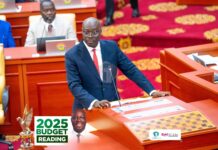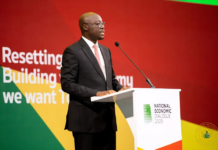
Government’s decision to postpone the issuance of Eurbond until favourable market conditions might come along with some challenges for the economy.
According Deputy Minister of Finance, Ato Forson, the ministry had to delay raising the $1.5 billion because of rising interests on previous dollar denominated bonds issued.
But what are the critical areas that could be the hardest hit because of the Finance Ministry’s decision to extend the period for issuing the bond?
For some economists and financial expects, the Ghana cedi might be one of the biggest casualties if market conditions do not improve anytime soon for this $1.5 billion Eurobond to be raised.
Because it was expected that the money coming in could help increase the Bank of Ghana’s reserves by making available a lot more dollars to support local currency.
The central bank’s dollar account could increase by from between $3 billion to almost $8 billion Ghana cedis by end of this month on this expected inflows from the Eurobond and cocoa loan syndication.
However with the Eurobond challenge it is not clear what will happen, especially as the need for dollar reserves to meet Christmas and January imports looms.
Again government was hoping to use some of the bond proceeds to meet its financial obligations before end of this year and also finance some projects outlined in the budget.
Another thing that government was hoping to use this money for was to pay of some domestic bond debts to reduce interest rate on short term lending.
So with this delay what will also happen?
Could government be forced to cut down its expenditure again because of this funding gap? Or will government hike tax rate to handle this challenge?
Joy
























